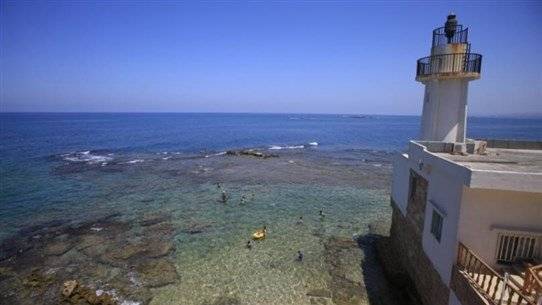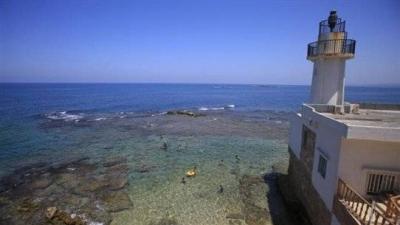There is hardly a village in Lebanon that lacks guesthouses or "chalets." Although there is no official count of their numbers, they have reached hundreds. Despite this, there are no available places, and pricing is exclusively in foreign currency. This situation makes it hard to believe that the Lebanese people are living through one of the most difficult and complex economic crises globally. The proliferation of such leisure facilities now and today is astonishing and even leaves you wondering where the dollars for investors and today’s renters are coming from.
The cost of one night's stay in a guesthouse or "chalet" ranges between 80 to 250 dollars, while a third-class employee's salary does not exceed 120 dollars. Still, contacting chalet owners during the summer always ends with the word "reserved." Messaging them on the WhatsApp app simplifies the process; if you send “Hello,” the automated responder replies with the guesthouse conditions and pricing exclusively in foreign currency, followed by a list of available services at that location not found in your primary home, such as 24/7 electricity. The surprise lies in the complete reservations during the summer months, extending to September, meaning you can plan to stay only in October at the earliest.
The phenomenon of guesthouses is mushrooming in Lebanese villages, especially those with significant numbers of expatriates. These people are not seen as ordinary individuals but as "machines to print dollars" that should be exploited as much as possible. Historically, the phenomenon of renting properties did not start during the crisis years from 2019 to today but can be traced back at least ten years. In those days, guesthouse owners would rent their properties to residents or expatriates wanting to stay for a few days outside their living areas. At that time, these guesthouses consisted of "villas" with private pools or traditional countryside houses built from old yellow stone. Today, models like "Hoomin Al-Fouqa" serve as the foundation; this southern village stirred controversy on social media when a chalet owner demanded an amount of 350 dollars for one night's stay.
**Fresh Opportunities**
Several landowners in the south today are pursuing "promising" investments, based on the idea of building guesthouses as projects that generate foreign currency income. Maryam, a secondary education teacher, is one of them. She recounts how her "salary has shrunk to the point where it is no longer enough to fill her car’s fuel tank." As a result, she found a good investment project in a piece of land she inherited from her parents, especially since she managed to secure the necessary funding from one of her expatriate relatives. She prepared the necessary maps and obtained the permits to start construction, even beginning to search for suitable furnishings.
Economically, these projects stimulate the economic cycle in the villages where they are established. People come to stay there without food or drinks usually, so they buy their needs from nearby shops, which contributes to "moving the goods on the shelves." The purchases made by guests are not insignificant; some shop for "whatever they want, unlike the villagers who only buy necessities," according to a supermarket owner in the southern village of Tyre. For his part, Abbas Diab, the mayor of Tyre, sees the presence of guesthouses within his municipality as "tourist attractions for expatriates and residents alike for recreation and holidays, and as evidence of the area’s safety." He also points out the employment of labor in the village, as each project employs between 10 to 12 young men and women from the village.
The mayor of a village in the Jabaa district confirmed that he "does not oppose people searching for resources for a decent living, especially in his village, where its residents have been unable to reactivate their basic activities after the invasion and displacement." However, there is an unseen drawback that cannot be compensated for, represented by "the destruction of nature due to the proliferation of guesthouses on the outskirts of the village." He adds, "After a while, the village will no longer maintain its serene character." He questions the "sustainability, especially with the multiplication of workers in this field." He concludes, "I tried to maintain the rural character of the area, so I built shops far from the archaeological square to be used by car repair shop owners, so they do not affect the shape and aesthetics."
**Between Beneficiaries and Investors**
Among the beneficiaries of guesthouses is Hanadi, who came from the United States for a summer vacation and experienced this for the first time this year. She views the situation as "not worth this much money," as "one night cost me 150 dollars, and I wouldn’t have gone through with it were it not for the idea of the space and our closed private pool as tenants." She mentions that "the number of people allowed is 8, for a duration of 23 hours, and you pay along with the rent an amount titled “security deposit,” which is refunded after verifying the condition of the place upon its return. However, for this “large amount,” you find yourself as if you are in “the wilderness, as there are none of the services we are used to receiving in hotels, not even breakfast, and you have to bring all your food supplies with you.” Conversely, Hanadi adds, "the chalet owner provides you with phone numbers of nearby shops in the village to order what you want." She indicates that this hardship is compensated by "the kind treatment of the villagers," and recalls, "On the first night, after discovering there was no food available, we went to a shop to buy bread and found no supply, so the shop owner gave us bread from her home." She concludes, "Turkey is much cheaper."
On the other hand, Mahdi Naimeh, a guesthouse owner, states that "the cost of building, furnishing, and landscaping each guesthouse reaches about 20,000 dollars, not including the cost of building the private pool." Regarding the latter, he mentions substantial amounts that investors can incur if they choose to "build pools professionally in terms of water drainage and recycling." In the last year, they have incurred additional costs to install solar power stations to ensure a constant electricity supply. The required amount for a night stay reaches 200 dollars during peak season, and he refuses to say that the number is exaggerated since "the investor wants to recoup his capital within a short period, given the risks in Lebanon." He also declined to disclose operational costs such as workers' wages, raising many questions about revenues and the absence of taxes being paid to municipalities or relevant ministries such as tourism.




